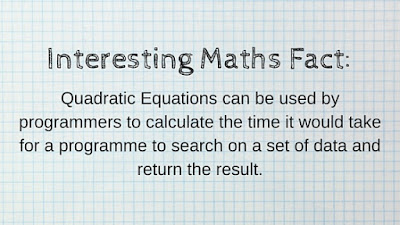I really enjoyed Maths when I was at school. I liked puzzles and mysteries, and Maths is both of those things! I didn't pursue Maths beyond GCSE, but I have always enjoyed documentaries, programmes and books about the application of Maths to areas of science and discovery - such as astronomy, cartography, art, engineering, physics, and - you guessed it - computer science!
Eventually I was no longer content with just knowing about Maths, I wanted to 'do the Math'!
My Journey Into Numberland
After [many] years away from school I had done nothing more complex than working out prices, so I thought what better place to start than Maths GCSE... again! I did an intensive correspondence course in Higher Level GCSE Maths, and it was intense! (You can read more about it here)
Logical Thinking
Before you panic, I'm not suggesting that you go back to school and do Maths GCSE! You really don't need to. What struck me the most about doing the Maths course (as a mature student) was the realisation that Maths is mostly about thinking in a certain way. It is very logical. So, if you don't panic, you can work through the questions methodically and get the right answer. There are no surprises! You are not required to make discoveries! All you have to do is follow tried and tested steps!
Programming is the same in that respect, because it calls on existing resources and requires logical and organised thought. There's no reason why you couldn't go on to make amazing discoveries in the future, or invent something new, but you don't need to reinvent the wheel just yet.
You really don't need to be a Maths whizz to do programming! It's all about getting your thinking right.
When you are faced with a programming task / problem, if you can identify and understand the possible methods that could be used to solve it, then you are well on your way! It's all about getting your thinking right, and learning what the available resources are, as opposed to knowing everything in detail.
Programming Makes Maths Easy!
The great thing about programming is that most of the Mathematical methods for solving problems, such as performing searches on data, have already been turned into easily reusable code that you can pretty much copy and paste into your programme. Think calculators, but way cooler!
Knowing too much can sometimes be a disadvantage, and self-doubt can be very healthy in programming.
If you already know a lot, you may miss some important details and steam ahead, only to find that you've reached a dead end! If, however, you take a more analytical approach, by constantly asking questions as you go along, you will engineer and create a solid solution. So don't worry if you think you don't know enough. That's ok, and it could be an advantage!
Want to know more?
See my beginners' guide to Binary Search Algorithms for an insight to programmatic thinking and problem solving. I'll be blogging regularly about my journey through programming, and sharing as I learn new things.
Websites and Resources
Kingsley Ijomah
Khan Academy
Codecademy
Virtual Nerd
Please do leave a comment below if you have any questions. I'd love to hear from you!
#Programming is Less About Maths Than You Think. Or maybe #Maths isn't what you think it is? https://t.co/LBZb4cwykA pic.twitter.com/RzuXE6crFW
— Danielle Curio (@DanielleCurio) December 9, 2015


No comments:
Post a Comment